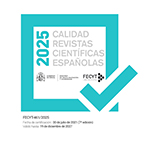Hossius of Cordoba as Catalyzing Agent for the Convening of the First Ecumenical Council
Abstract
Hossius of Cordoba (c. 256 – 359), also known as Osius or Hossius was elected to the see of Cordoba of Spain about 295, he narrowly escaped martyrdom in the persecution of Maximian. The year AD 303 saw a harsh persecution of the Christians throughout the empire. In 313 he appears at the imperial court of Great Constantine, being expressly mentioned by name in a constitution directed by the emperor to Caecilianus of Carthage in that year. That period of time a dangerous heresy which threatened the Christian theology, appeared in the Empire. The heresy was Arianism and its leader was Arius. So, the latter was notable primarily, because of his role in the Arian controversy, a great fourth-century theological conflict that rocked the Christian world and led to the calling of the First Ecumenical Council of the Church. This controversy centered upon the nature of the Son of God, and his precise relationship to God the Father. In 323 Hossius was the bearer of Constantine's letter to Bishop Alexander and Arius, in which he urged them to reconciliation. On the failure of the negotiations in Egypt, Constantine convened the Council of Nicaea, probably in agreement with Pope of Rome Sylvester I, and perhaps on the advice of Hossius. Perhaps, he presided, although it is unclear whether he did so in the name of the pope or was nominated by Constantine. The Bishop of Cordoba took an active part in drawing up its canons and the Nicene Creed. After the Council, He returned to his diocese in Spain.











